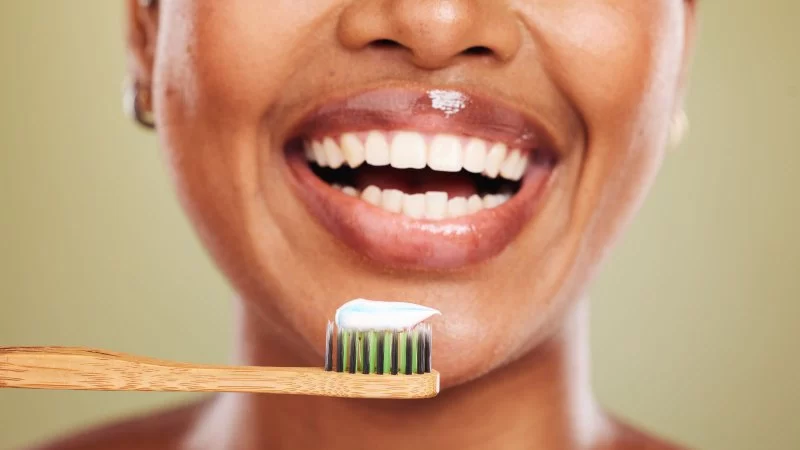
The Impact of Poor Oral Hygiene on Your Health
Oral hygiene is essential not only for the health of your teeth but for your overall well-being. Poor oral hygiene can lead to numerous dental and health problems, some of which can affect other parts of your body. While it may seem like a minor issue, the effects of neglecting your teeth and gums can lead to severe consequences.
1. The Beginning of Oral Health Problems
When we don't brush our teeth regularly or fail to floss, plaque builds up on the surface of our teeth. Plaque is a sticky, colorless film of bacteria that forms on your teeth and gums, leading to the earliest signs of dental problems. If not removed, plaque can turn into tartar, a hard substance that can only be removed by a dentist. Over time, this buildup leads to more significant issues like gum disease and cavities.
2. Gum Disease and Its Progression
One of the most common effects of poor oral hygiene is gum disease. Also known as gingivitis, gum disease is an inflammation of the gums caused by plaque and tartar buildup. If left untreated, gingivitis can progress into a more severe form known as periodontitis, which can cause your gums to recede, leading to tooth loss. In fact, periodontitis is one of the leading causes of tooth loss among adults in the United States.
3. Tooth Decay: More Than Just Cavities
Tooth decay, also known as cavities, is another significant result of poor oral hygiene. When plaque is allowed to remain on your teeth for too long, the bacteria in the plaque break down sugars in the food we eat, producing acids that attack tooth enamel. Over time, this can lead to the formation of cavities, holes in the teeth that need to be treated by a dentist. If left untreated, cavities can become infected and may even lead to abscesses or tooth loss.
4. Bad Breath (Halitosis)
Bad breath is an uncomfortable and embarrassing side effect of poor oral hygiene. When food particles remain in the mouth, they begin to decay, causing a foul odor. In addition, plaque buildup on the teeth can lead to gum disease, which is also a major cause of bad breath. The bacteria in the mouth release sulfur compounds that produce a strong, unpleasant smell. Regular brushing, flossing, and tongue cleaning can help reduce bad breath significantly.
5. Heart Disease and Other Systemic Issues
While it may come as a surprise, poor oral hygiene can have effects beyond the mouth. Several studies have shown a link between gum disease and an increased risk of heart disease. The bacteria from infected gums can enter the bloodstream and travel to the heart, leading to inflammation and the buildup of plaque in the arteries. This increases the risk of heart attacks and strokes. In addition, oral bacteria can also affect other areas of the body, such as the lungs, leading to respiratory infections.
6. Diabetes Complications
For individuals with diabetes, poor oral hygiene can make controlling blood sugar levels more difficult. Gum disease has been linked to higher blood sugar levels, which can exacerbate diabetes. In addition, the inflammation caused by gum disease may also interfere with the body's ability to process insulin effectively. Maintaining good oral hygiene is especially important for those managing diabetes.
7. Pregnancy Complications
Pregnant women who have poor oral hygiene are at a higher risk of developing pregnancy complications. Gum disease has been linked to premature births and low birth weight. Hormonal changes during pregnancy can also make the gums more susceptible to infection, so it's essential to maintain good oral hygiene during this time.
8. The Psychological Impact of Poor Oral Hygiene
Beyond physical health, poor oral hygiene can take a toll on your self-esteem and mental well-being. Bad breath, missing teeth, and visible signs of gum disease can cause embarrassment and lead to social anxiety. Many people avoid social interactions because they feel self-conscious about their oral health, which can affect their quality of life. By prioritizing oral hygiene, you can improve your confidence and avoid the mental and emotional stress caused by poor dental health.
9. Preventing the Effects of Poor Oral Hygiene
Luckily, most of the effects of poor oral hygiene can be avoided by practicing good oral care. Here are some tips to keep your teeth and gums healthy:
- Brush your teeth at least twice a day: Use fluoride toothpaste and a soft-bristled toothbrush to remove plaque from your teeth.
- Floss daily: Flossing helps remove food particles and plaque between your teeth that your toothbrush can't reach.
- Visit your dentist regularly: Schedule dental checkups at least twice a year for cleanings and exams.
- Avoid sugary foods and drinks: Limit your consumption of sugary and acidic foods, which can contribute to tooth decay.
- Quit smoking: Smoking is a major contributor to gum disease and tooth loss, so quitting can greatly improve your oral health.
Maintaining proper oral hygiene not only helps you avoid dental problems, but it also contributes to your overall health. By committing to a good dental care routine, you can ensure a brighter, healthier smile for years to come. For more information and tips on improving your oral health, visit Dentistry Toothtruth today.







 Corona Family Dental Group3.0 (42 review)
Corona Family Dental Group3.0 (42 review) Genesis Dental of Taylorsville4.0 (842 review)
Genesis Dental of Taylorsville4.0 (842 review) Edmond Dental Center: Michael Chandler, DDS5.0 (404 review)
Edmond Dental Center: Michael Chandler, DDS5.0 (404 review) Cash Family Orthodontics4.0 (141 review)
Cash Family Orthodontics4.0 (141 review) Spring View Dental Care4.0 (1298 review)
Spring View Dental Care4.0 (1298 review) Acworth Smiles Dentistry4.0 (145 review)
Acworth Smiles Dentistry4.0 (145 review) The Importance of Oral Health Education During Pregnancy for a Healthy Pregnancy
The Importance of Oral Health Education During Pregnancy for a Healthy Pregnancy Best Tips for Brushing Your Teeth Properly for Healthy Gums: Essential Techniques for Oral Health
Best Tips for Brushing Your Teeth Properly for Healthy Gums: Essential Techniques for Oral Health Why Skipping Dental Checkups Can Lead to Bigger Oral Health Problems
Why Skipping Dental Checkups Can Lead to Bigger Oral Health Problems Advantages of Porcelain Dental Restorations
Advantages of Porcelain Dental Restorations How Can Diabetes Cause Tooth and Gum Problems? Preventing and Managing Oral Health Issues
How Can Diabetes Cause Tooth and Gum Problems? Preventing and Managing Oral Health Issues Healthy Habits for Promoting Good Oral Health and Hygiene: Tips for a Healthy Smile
Healthy Habits for Promoting Good Oral Health and Hygiene: Tips for a Healthy Smile